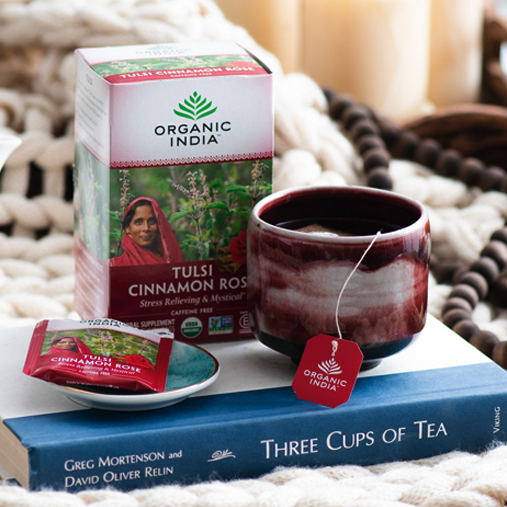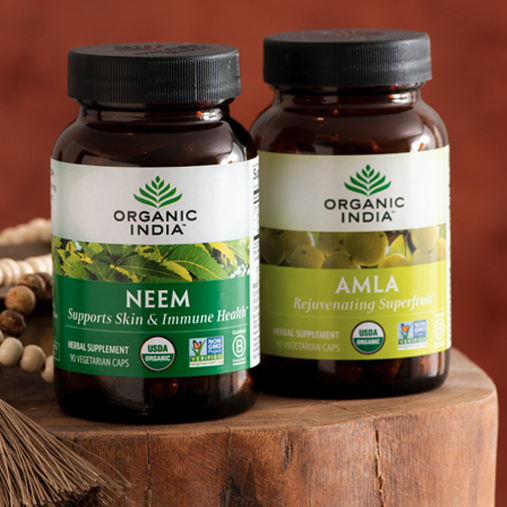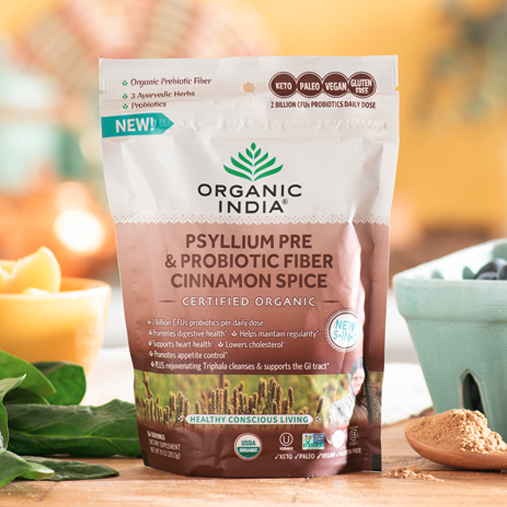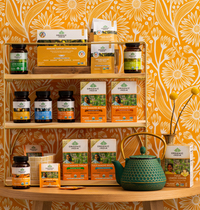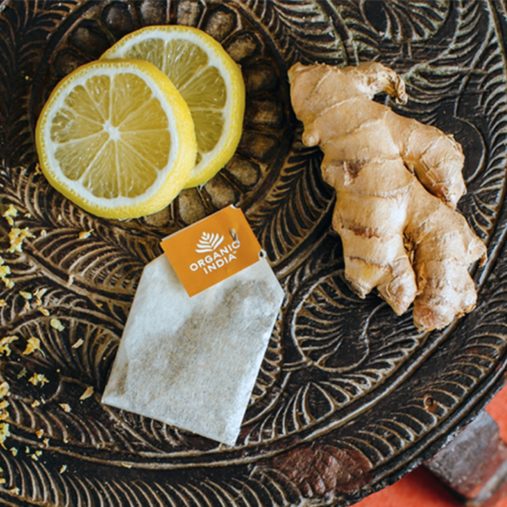Cinnamon is a beloved spice found in kitchens worldwide. It is cherished for its warm, sweet flavor and numerous health benefits. But did you know that not all cinnamon is the same? In this guide, we’ll take a peek into the world of this renowned spice, exploring the differences in cassia vs Ceylon cinnamon.
We’ll uncover why these two types of cinnamon stand out from over 250 known species of cinnamon trees for their aroma and sweet flavor. We’ll also explore the differences between cassia and Ceylon cinnamon, including their health benefits and traditional uses, as well as how to distinguish between them. By the end, you’ll clearly understand which type of this centuries-old spice best suits your needs, whether in the culinary arts or the medicinal realm.
What is Cinnamon?
Cinnamon is a spice obtained from the inner bark of the bushy evergreen trees belonging to the genus Cinnamomum. It’s been used for thousands of years as a culinary ingredient and for its medicinal properties. While many varieties of cinnamon are available today, cassia and Ceylon cinnamon are the two most commonly found in supermarkets and used in bakeries.
Once more valuable than gold, cinnamon was used in ancient Egypt in embalming and religious practices. Later, as it became more widely known and in high demand, it became one of the most profitable spices for the Dutch East India Company. Today, cinnamon is not only used for its warm and spicy flavor but also its health benefits. Cinnamon is rich in polyphenols and antioxidants, making it great for supporting healthy immune functions.
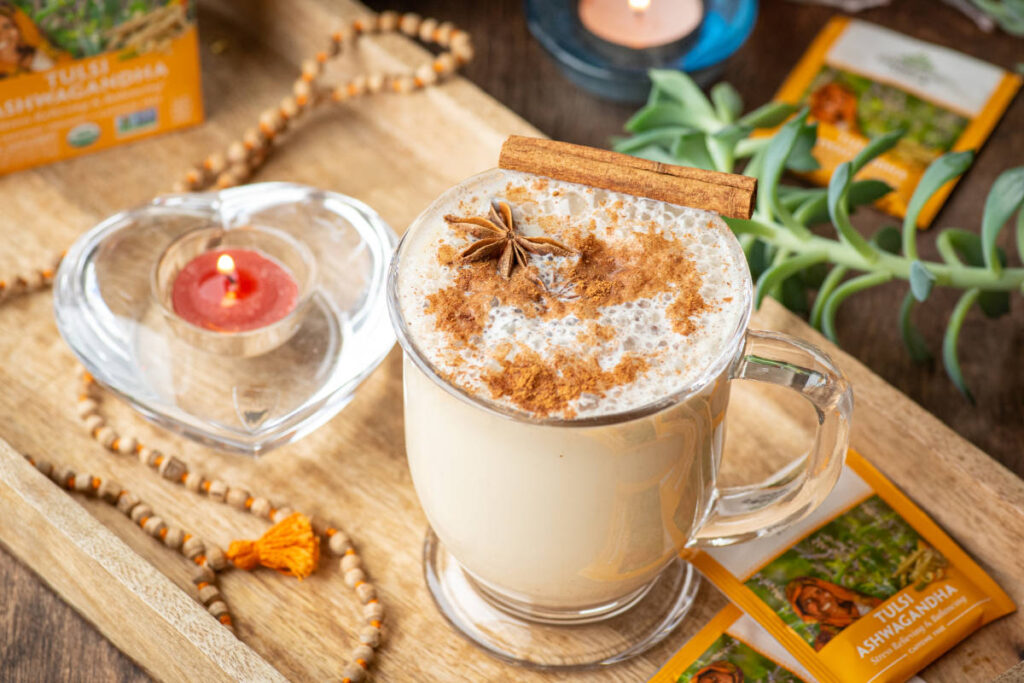
Ceylon Cinnamon: The True Spice
Ceylon cinnamon, pronounced suh-laan, is often called “true” cinnamon. Its scientific name, Cinnamomum verum, actually translates to “true cinnamon.” Ceylon cinnamon originates from Sri Lanka, which was historically known as Ceylon until 1972.
Known for its subtle, sweet flavor and light brown color, Ceylon cinnamon is a favorite among chefs worldwide for its culinary capabilities. It is very delicate, making it easier to crumble over dishes. Its distinctive flavor is mild and delicate, with a slight citrusy aroma, which pairs well with fruits, tea, and coffee.
Top Qualities of Ceylon Cinnamon
- Delicate, Sweet Flavor: Gourmet chefs prefer its complex yet gentle flavor.
- Rich in antioxidants: Supports healthy immune function.
- Supports blood sugar: Supports blood sugar in an already healthy range.
- Supports a healthy inflammatory response: Used in traditional medicine to support digestive health
- Lower coumarin content than Cassia: Coumarin is a naturally occurring anticoagulant, or blood thinner, found in plants, but it may be harmful to the liver if consumed in large doses.
Ceylon cinnamon is best when it is fresh. Grinding fresh Ceylon cinnamon will provide a more potent flavor for your dishes.
How To Tell if Cinnamon Is Ceylon Cinnamon?
Ceylon cinnamon is easily identified by its color, texture, fragility, and taste. It is a light brown or tan color. It is very fragile, thin, and easily broken. It forms multiple light papery layers when rolled up. Ceylon cinnamon tastes very delicate and sweet, with clove and citrus notes.
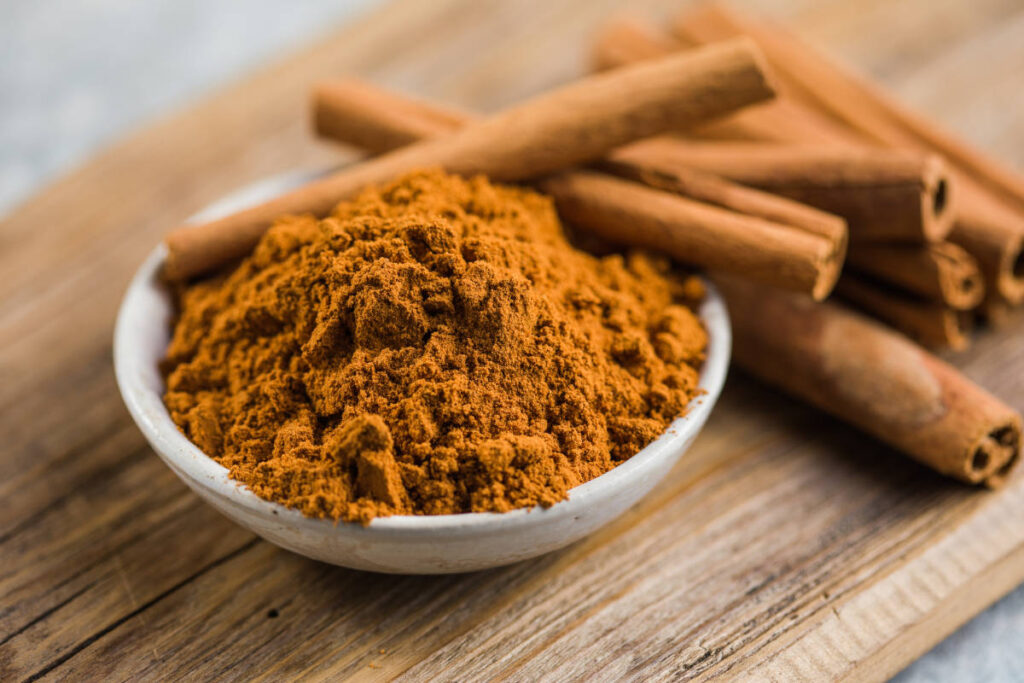
Cassia Cinnamon: The Spicy Pantry Staple
Cassia cinnamon, pronounced ka-shee-uh, comes from the Cinnamomum cassia tree, which is native to southern China. Known for its robust and spicy flavor and dark brownish-red color, it is the most commonly available cinnamon variety, making it a staple in kitchens worldwide. Compared to Ceylon cinnamon, cassia is thicker and harder, making it more suitable for bold-flavored dishes.
Historically, Cassia cinnamon was a medicinal herb in traditional Chinese medicine and a highly valued spice among ancient trade routes. Although Cassia cinnamon has many health benefits, it contains higher levels of coumarin, which may be harmful, so it should be consumed in moderation.
Top Qualities of Cassia Cinnamon
- Strong, spicy flavor: Suitable for various dishes and baked goods.
- High in essential oils: Contains cinnamaldehyde, which enhances its strong flavor and aroma.
- Traditional use: Used in ancient Chinese medicine for its purported health benefits.
- High Coumarin. High coumarin content may make cassia unsafe for long-term use as a supplement.
- Affordable and accessible: Cassia cinnamon is widely available and cost-effective
Even though Cassia cinnamon is considered lower quality than Ceylon cinnamon, it is more readily available, making it the most common cinnamon found in the pantry.
Is Cassia Cinnamon Fake Cinnamon?
While it’s true that cassia cinnamon is considered to be a lower-quality cinnamon, it is not fake. It comes from the Cinnamomum cassia tree and is the most common variety of cinnamon available in grocery stores. However, it is often labeled simply as “cinnamon,” which can be misleading, especially if you are specifically looking for Ceylon cinnamon. Cassia cinnamon is completely fine for your favorite desserts and adds a hint of spice to your preferred drinks.
Which is Better, Cassia or Ceylon Cinnamon?
Ceylon cinnamon is considered superior in terms of flavor and health benefits due to its lower coumarin content. It has 63 times less coumarin than cassia cinnamon, making it safer to use as a health supplement.
ORGANIC INDIA’S Ceylon Cinnamon herbal supplement provides a healthy dose of antioxidants and digestive support with natural ingredients. It is safe to use long-term and perfectly complements your daily supplement routine.
Ceylon cinnamon has a lighter, spicier flavor and is a chef’s favorite in the kitchen. If you use a significant amount of cinnamon in food preparation and baking, you’ll want to make sure you have Ceylon cinnamon on hand. Your desserts will be mouth-watering and scrumptious, and your savory dishes will have your guests wondering about your secret ingredient.
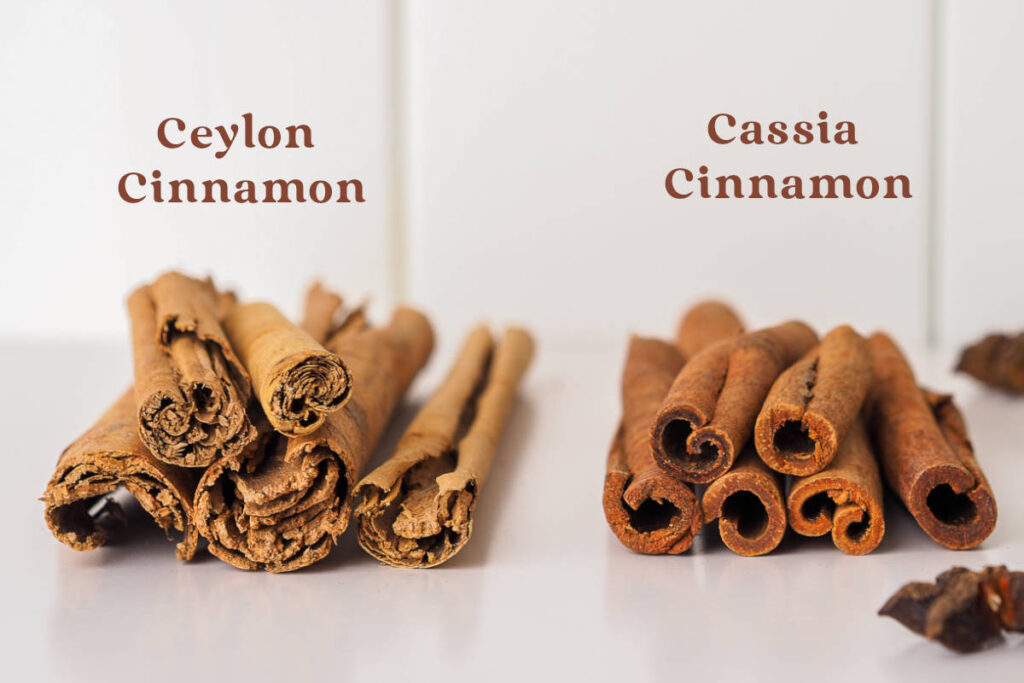
Is Supermarket Cinnamon Cassia or Ceylon?
Most supermarkets carry cassia cinnamon. If the label simply says “cinnamon,” it’s most likely cassia cinnamon. Ceylon cinnamon will be labeled accordingly and reflect a higher price due to its higher quality.
Cassia vs. Ceylon Cinnamon: What Is the Healthiest Type?
While both types of cinnamon offer similar health benefits, Ceylon cinnamon is preferred as it is gentler than cassia, making it safe to use long-term. It is generally regarded as the healthiest and safest type of cinnamon, especially if you’re concerned about coumarin levels. Ceylon cinnamon is more than a modern health supplement. It has been celebrated for centuries among traditional medicine practitioners in ancient Rome, India, Egypt, and China for its wellness benefits.
Ceylon Cinnamon has many health benefits, but three of the main ones are digestive support, healthy blood sugar support, and mediating a healthy inflammatory response.
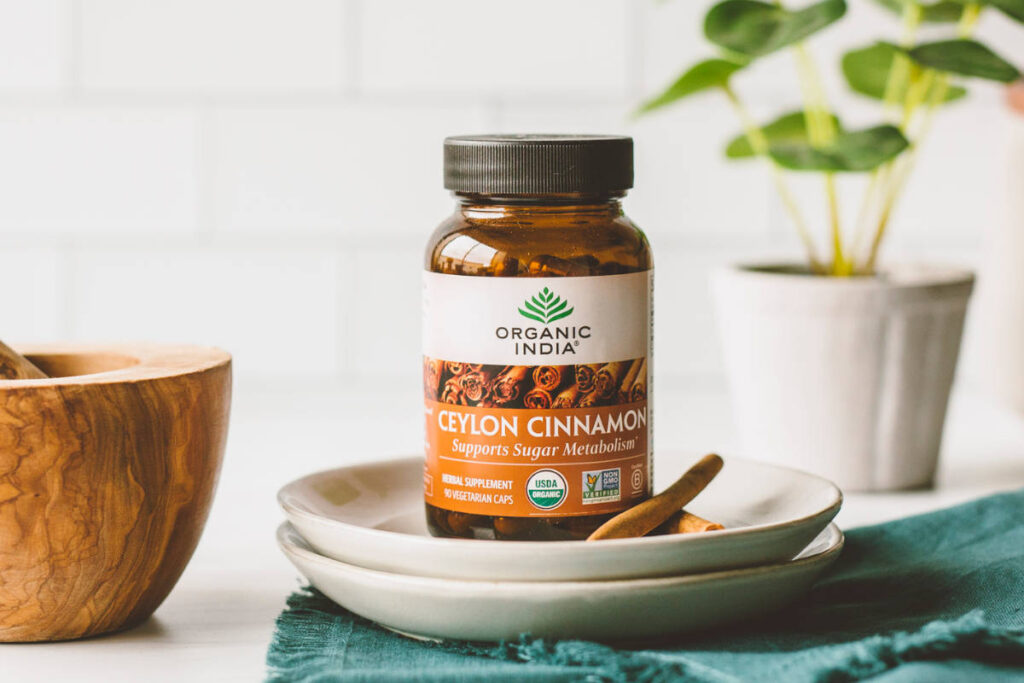
1 Ceylon Cinnamon Helps Maintain Healthy Digestion
In Ayurveda, cinnamon is considered a warming spice that can stoke digestive fires. Cinnamon has prebiotic properties that, when consumed regularly, may help restore the balance of bacteria in the gut.
2 Ceylon Cinnamon Supports Healthy Blood Sugar Levels
Ceylon cinnamon is particularly valued for supporting natural glucose metabolism and blood sugar in an already healthy range. Studies suggest that cinnamon may increase insulin sensitivity, which helps move sugar into cells more efficiently after eating.
3 Ceylon Cinnamon May Mediate a Healthy Inflammatory Response
Cinnamaldehyde is a naturally occurring flavonoid and antioxidant that gives cinnamon its flavor and aroma. It is also the active ingredient that supports a healthy inflammatory response by targeting free radicals within the body. Free radicals are unstable molecules that can build up in the cell and cause damage.
Which Type of Cinnamon Is Toxic?
Cassia cinnamon can be toxic if consumed in large quantities due to its high coumarin content. Therefore, it’s important to use cassia cinnamon in moderation. The best alternative is to use Ceylon cinnamon, which contains only approximately .004% coumarin, whereas cassia contains approximately 1% coumarin.
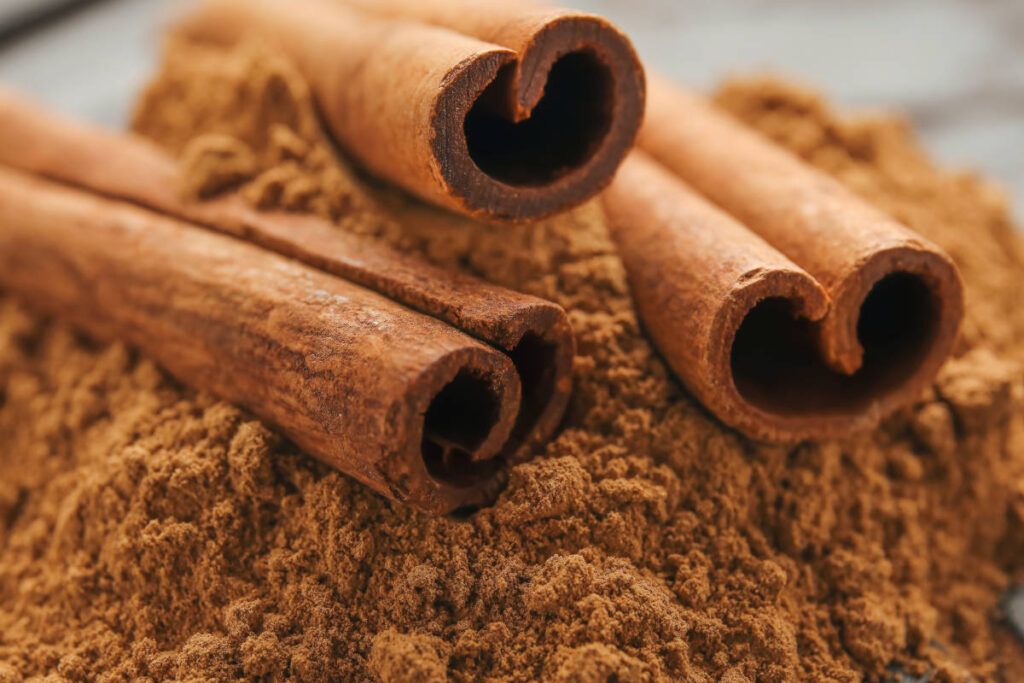
Cassia vs. Ceylon Cinnamon Quick Guide
Scientific Name:
- Ceylon: Cinnamomum verum
- Cassia: Cinnamomum cassia
Place of Origin:
- Ceylon: Sri Lanka and Southern India
- Cassia: Southern China and Southeast Asia
Traditional Use:
- Ceylon: adding flavor to culinary dishes; traditional Ayurvedic medicine
- Cassia: everyday cooking; traditional Chinese medicine
Color:
- Ceylon: tan or light brown
- Cassia: reddish dark brown
Taste:
- Ceylon: mild, complex delicate spice, naturally sweet
- Cassia: strong and spicy with a slightly bitter flavor
Aroma:
- Ceylon: fragrant hints of citrus and floral notes complement the mildly spicy aroma
- Cassia: strong and spicy with a somewhat woody and earthy fragrance
Benefits:
- Ceylon: Supports natural glucose metabolism, supports blood sugar in an already healthy range, and may help curb sugar cravings.
- Cassia: Supports natural glucose metabolism, supports blood sugar in an already healthy range, and may help curb sugar cravings.
Culinary Use:
- Ceylon: Its subtle and complex flavor profile is perfect for breads, cakes, pastries, and desserts.
- Cassia: Its full-bodied flavor is suitable for flavoring ice cream, pies, stewed fruit, and chocolate.
Choosing the Right Cinnamon for Your Health and Kitchen
When comparing cassia vs. Ceylon cinnamon, you’ll notice both have unique qualities and benefits. Ceylon cinnamon is preferred by those seeking a healthier, more refined flavor with lower coumarin levels. However, if you’re using cinnamon in small quantities primarily for cooking, cassia cinnamon is a great, cost-effective option.
For those using cinnamon for its health benefits, it’s important to use organic, sustainably sourced cinnamon. ORGANIC INDIA’S Ceylon Cinnamon herbal supplement is grown sustainably using regenerative agriculture. Once harvested, it is ground on-site to preserve peak freshness.
You can also enjoy the delightful flavor of cinnamon with Organic India Cinnamon Spice Psyllium Pre & Probiotic Fiber or enchantingly delicious Tulsi Cinnamon Rose tea.
Understanding the differences outlined in this comparative guide can help you make an informed decision that best suits your health and culinary needs.
